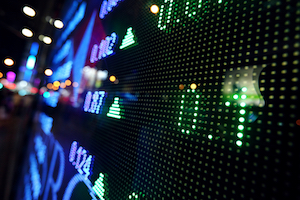An expert for Exxon Mobil Corporation has opined that the authorities’ claims that the company hid the financial risks of climate change are “a tad circular.”
The Securities Fraud Trial
New York Attorney General Letitia James filed a complaint against Exxon Mobil Corporation, alleging that Exxon intentionally misled investors about the way it planned for the expected future impact of climate change on its business. According to the complaint, investors lost between $476 million and $1.6 billion when the alleged scheme was exposed.
New York also claims that former Exxon Chief Executive Officer Rex Tillerson spearheaded a plan to dupe investors into thinking it was applying a high “proxy cost” for carbon to its investment decisions, while secretly using a lower figure to evaluate projects, including those in the Alberta oil sands.
Irving, Texas-based Exxon responded there weren’t any losses from the alleged scheme because there was no deception. Tillerson testified the allegations regarding a plan to dupe investors were false.
Expert Witness Testimony
The state retained Eli Bartov, an accounting professor at New York University, and Peter Boukouzis, an assistant professor of business management at the University of Saint Katherine in San Marcos, California, to testify on its behalf.
Bartov testified that Exxon had inflated its stock by lying to concerned investors starting in 2014. Boukouzis testified about the resulting stock drops tied to the news events.
Exxon Mobil Corporation hired Allen Ferrell, a Harvard Law School professor who is also a senior consultant at Compass Lexecon, to testify on its behalf. Ferrell was the last witness to testify in the three-week trial in Manhattan.
Ferrell refuted Bartov’s testimony by saying that Bartov’s study of Exxon’s share-price movements hadn’t controlled for fluctuations in the energy industry. Ferrell said that Boukouzis wrongfully cited two news-related stock movements that don’t qualify as statistically significant.
The News Events Used in Damage Calculations
Ferrell also argued that New York’s claim that investors lost as much as $1.6 billion after authorities accused the company of hiding the financial risks of climate change was “a tad circular.”
Ferrell said that it was somewhat convenient for an authority to cite news about its own fraud investigation as the cause of a company’s losses. He stated, “You don’t shoot the arrow and then draw a bulls-eye around it.”
The complaint outlines three news events that allegedly resulted in Exxon’s stock dropping:
- Two events that relate to climate probes in 2016 by the California attorney general and the U.S. Securities and Exchange Commission.
- New York’s June 2017 claim that it uncovered evidence of a “sham.”
The state plans to use these three events to calculate the alleged losses. Exxon’s stock did dip on the days of the three news events. The state’s calculation of losses would become crucial if it wins the trial.
In it memorandum, New York wrote, “The evidence will show that when the deception uncovered by the state’s investigation and related investigations was revealed, Exxon Mobil’s stock price fell, injuring investors who must now be made whole.“
The case is being heard by New York Justice Barry Ostrager, who will decide the case without a jury.




